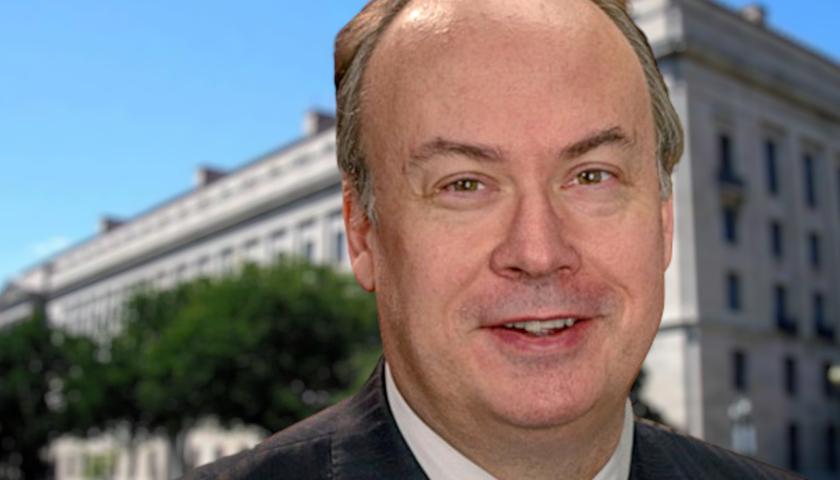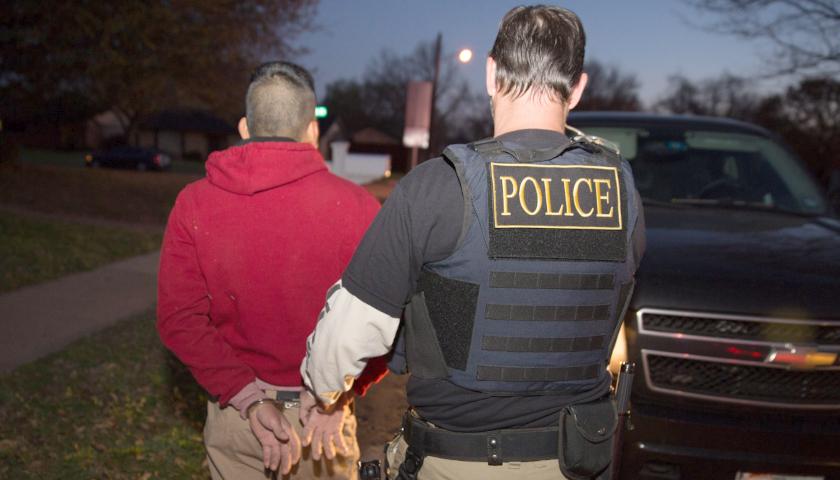Jeff Clark, former acting assistant attorney general during the Trump administration, said it is unlikely any officials in the Biden Administration will be charged and prosecuted under a provision of the 1939 Hatch Act for election interference and affecting the 2024 election.
Clark’s assertion follow’s Saturday’s exclusive report by The Tennessee Star analyzing Scott J. Bloch’s understanding that the provision of the Hatch Act in question, now codified as 18 U.S.C. 595, could be used to prosecute Biden Administration Department of Justice (DOJ) and Department of Homeland Security (DHS) officials for election interference and affecting the 2024 election.
Bloch served as Special Counsel of the Office of Special Counsel (OSC) under former President George W. Bush from 2003 to 2008.
The provision of the Hatch Act, 18 U.S.C 595, reads as follows:
Whoever, being a person employed in any administrative position by the United States, or by any department or agency thereof, or by the District of Columbia or any agency or instrumentality thereof, or by any State, Territory, or Possession of the United States, or any political subdivision, municipality, or agency thereof, or agency of such political subdivision or municipality (including any corporation owned or controlled by any State, Territory, or Possession of the United States or by any such political subdivision, municipality, or agency), in connection with any activity which is financed in whole or in part by loans or grants made by the United States, or any department or agency thereof, uses his official authority for the purpose of interfering with, or affecting, the nomination or the election of any candidate for the office of President, Vice President, Presidential elector, Member of the Senate, Member of the House of Representatives, Delegate from the District of Columbia, or Resident Commissioner, shall be fined under this title or imprisoned not more than one year, or both.
“I don’t think anything’s going to happen before the 2024 election because the special counsel is an appointee who was relatively narrowly confirmed by President Biden,” Clark explained on Monday’s edition of The Michael Patrick Leahy Show.
“I don’t expect that Biden is going to bring any charges against anyone who’s arrayed against Trump,” Clark added.
Moving forward, Clark said not only should the provision be deeply studied as the specific election interference statute has “never been used” before, but the parties interested in bringing about such lawsuits also need to have “the law” on their side.
“The election interference statute that’s part of the Hatch Act has never been used. I think you’d need to study it. I think you need to find a way, probably, to narrow it, to make sure that it’s a constitutional provision and fits within the constitutional confines. That would require, I think, a deep dive into the legislative history in terms of how related provisions of the Hatch Act have been interpreted. I’m not the kind of person who would prejudge that. I think if you were talking of what these days would amount to the mirror image of me, they’d be screaming from the rafters that if their party took back the White House and the Justice Department, that would absolutely be prosecuted. But I’m not that kind of bent. I like to study things and you not only need to have the facts, but the law on your side. This is a statute that hasn’t been interpreted or applied really yet,” Clark said.
Continuing on his point of having the law “on your side,” Clark said the parties that would bring a complaint of an official under 18 U.S.C 595 would have to “work with the DOJ” to “try to send somebody to jail.”
“There are three levels of enforcement. Administrative, which occurs before the agency and then the outcome is potentially reviewed in court. If the losing party wants to do that, the higher level than that is civil adjudication, which would occur in court. Then, the last would be criminal enforcement. So it’s not surprising to me to imagine that the office of Special Counsel lacks direct criminal enforcement power. They can refer cases to DOJ, but that’s more that they propose and DOJ disposes of it…If they want to proceed civilly, to get much larger penalties on a per day basis and if they want to try to send somebody to jail, then they work with DOJ to do that. They just can’t do that on their own,” Clark explained.
– – –
Kaitlin Housler is a reporter at The Tennessee Star and The Star News Network. Follow Kaitlin on X / Twitter.
Background Photo “The Robert F. Kennedy Department of Justice Building” by The United States Department of Justice.





